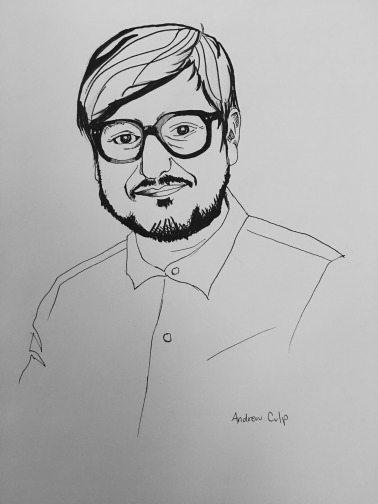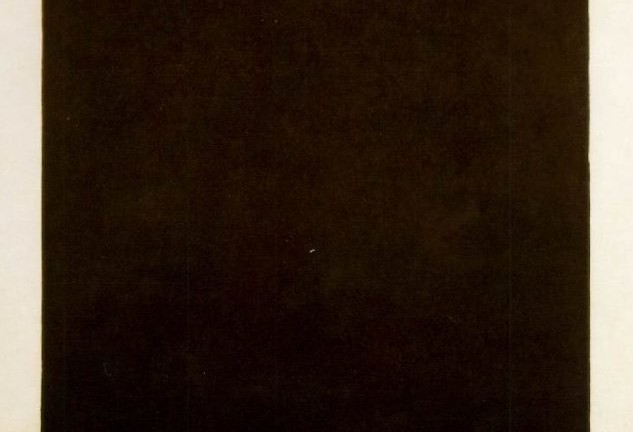Alfie Bown: Your book is just 77 pages long but your project and its scope is huge. Your aim has been to recover Deleuze from those who saw him as the philosopher of “joyous affirmation” and who experienced his work (without perhaps always admitting it) as vitalist, life-affirming and even positive. Can you discuss a little this existing or even “canonical” idea of Deleuze and explain to our readers why such an idea of Deleuze might be a problem? Some of our readers may even see this joyousness and life-affirmation as a good thing (before they read your book).
Andrew Culp: Life-affirmation comes packaged in many forms. A few familiar faces are the puritanical pro-lifer, the feel-good self-help fanatic, the manic shopaholic, the hippy free spirit, and the psychedelic stoner who marvels at the infinity of the cosmos. At first blush, none should find much affinity with Deleuze (except, regrettably, maybe the last one). Yet as these pop movements have gained influence in the last few decades, each has found ways to cozy up to the thought of Deleuze – “Critique has run out of steam. BuzzFeed as bricolage. Reddit as rhizome.” And now, I am starting to see racist new materialists popularize bio-theories akin to “Conatus begins at conception.”
My worry is that the self-improvement and philosophy sections of many bookstores have grown indistinguishable. Mix in the business mantras of “service with a smile” and “a happy worker is a productive worker,” and you have a perfect storm. Deleuze scholars in particular have been susceptible to such co-option since the publication of A Thousand Plateaus, which is a stunning work whose experimental style unfortunately opened the door to a lot of amateur musings gullible to pseudo-science. I will leave it to others to catalogue those tendencies and instead mention its antidote.
Short-circuiting “compulsory happiness” may be our greatest struggle today. We need to take our cues from feminists, who have long been at the forefront of the cultural politics of emotion. There is a deep feminist archive on emotion as labor. While many look to sociological references about care-as-work, like many feminist ideas, its origins are not in the academy. Since the early 1970s, there has been an international campaign posing the impossible demand of wages against housework. The idea is that women’s work, especially that done in confines of the home, is no less essential than the relatively limited cross-second of largely white, able-bodied men working in emerging spheres of industrial production. In fact, the behind-the-scenes work of housing, feeding, breeding, and all other forms of caring is an even more “hidden abode of production” that has made black and working class women into their own autonomous political force.
There is supreme irony that comes from reading Deleuzian joy independently from the feminist critique of emotional labor. In his first collaboration with Guattari, Deleuze declares that the great break from Oedipus, capitalism, and everything they entail begins with an escape from the family – the uncle who went bad, the bankrupt cousin a victim of the Crash, the anarchist grandfather… To add a bit of intellectual history: some of the most prominent feminist Deleuzians are influenced by Carole Pateman, whose Sexual Contract remains one of the fiercest critiques of the sexual coercion that results from compulsory gender roles. All I propose is a modest reminder of Pateman, Federici, Ahmed, and other’s work on coldness as an essential feminist move.

Andrew Culp, by ChinHsin Esther Kao
AB: Let’s discuss Deleuze in relation to opposing contemporary capitalism, since that is something that comes up several times in your book and something we should all be concerned with right now. One important discussion you have about this is in the section on “nomadism.” Here you make a distinction between the barbarian and the pastoral, arguing that barbarians “avoid the liberal trap of tolerance, compassion, and respect,” making them capable of dissolving capitalism. Perhaps you can explain this position, and even consider whether any such barbarians or barbaric movements exist at the moment.
AC: Guattari journaled about Deleuze’s obsession with nomads, historical and contemporary. Drawing on Toynbee, Deleuze found in the nomads of the Eurasian Steppe a people who “changed their habits so they did not have to change their habitat.” This sense of internal transformation comes from Deleuze’s deeply modernist notion about the future as an alien force; that even the most monumental things are undone over the course of time, which fused well with Guattari’s invention of the term becoming. Unfortunately, I think the term “becoming” has outlived its usefulness with its colonization by the self-help mantras of ‘becoming the change you want to see in the world’ or ‘finding your inner self.’
Barbarians are the nomad’s unruly cousin. Ancient Greeks, mocking the sounds of a foreigner tongue (“bar bar bar”), dismissively called strangers unfit for ethical recognition “barbarians.” From this, barbarians are said to have two essential characteristics: they do not speak in the official language of politics, and their actions offend established norms of civility. The result is an abiding spatial metaphor: barbarian are cast out, left to roam outside the city gates.
Michael Hardt and Antonio Negri resurrected the figure of the barbarian in Empire, noting historical examples of political movements constituted by peoples forced into exodus. Many people took the image to heart, aching to transform the fury of the anti-globalization movement into a Global Justice Movement formally constituted and materially organized through events like the World Social Forum. I am sympathetic to the anarchist critique made by Crisso and Odoteo, who recast the barbarian as even more dangerous and disorderly than Hardt and Negri’s.
Where do we find those barbarians almost twenty years later? The slogan unifying the anarchist street-level response to President Donald Trump is “become ungovernable.” The ranks of the barbarians swells during student protests the world over, over the last two years at Wits in South Africa, at university’s and high schools during the 2011-2013 Chilean student strikes, and the UK student demonstrates of 2010. But perhaps those are still too organized. Riots, revolts, and rebellions launched out of compromise and desperation are better examples – the burning down rows of factories in Bangladesh after garment worker deaths in 2012-2013, the migrant laborer Little India Riots of Singapore in 2013, in the camp uprising at Australia’s humiliating Manus Island refugee detention center in 2014, the Baltimore Rebellion after the police murder of Freddie Gray in 2015. These moments are a dizzying mixture of rage and uncertainty, where the message is immeasurably intense but its content is unsettlingly unclear.
AB: The book is interested in Deleuze in his relation to feminism and queer theory and this seems to form an important basis for many of your more political arguments. Can you say something about this, and perhaps about your critique of “reproduction”?
AC: There are so many things about this world that are utterly intolerable. We are asked to compromise so often. We are beaten down by ‘realists’ who tell us that we need to accept the world for what it is. If we listen to them, then we end up reproducing the sources of our misery. For many of us, the only future we can imagine is the end of the world as we know it.
At the heart of queer feminism is the ideal of living a life without compromise. One key piece is questioning if reproducing is our lot in life. Though it is not terribly fashionable today, we owe a lot to second wave feminism. The second wave experiment of living without men boils down to a critique of reproduction. In time, we may now want to revise a lot of their ideas, but Valerie Solanas’s SCUM Manifesto, Shulamith Firestone’s Dialectic of Sex, and Donna Haraway’s “Cyborg Manifesto” all envisioned an end of the subjugation of women as mere vessels for reproduction. An obvious revision still in process is trans*-critique. As such, early work by Sandy Stone and Susan Stryker were absolutely essential to further release sexuality from the throes of the reproductive aim. It is time to transport the queer critique of reproduction to fields still leaning on old nineteenth-century biological models of society.
One quick caveat: I am not making a blanket statement against reproduction. In fact, Hortense Spillers, Dorothy Roberts, and other black scholars have chronicled the devastating affect of racialized assaults on black motherhood that are part-and-parcel of white pro-natalist ideologies. Ultimately, the best critique of reproduction takes into account the patriarchal reasons for why childrearing is simultaneously required and restricted.

AB: There is a short section in the book where you discuss the difference between a molecular and a cataclysmic revolution. Can you expand on the distinction: how is it that the cataclysm might be the new beginning we need, and how might that be different to accelerationism, which you discuss elsewhere?
AC: The bulk of Dark Deleuze is a series of seventeen contrasts (cataclysmic not molecular, transformation not genesis, barbarian not pastoral…). I use them to represent forks in the road, with me offering routes away from consensus interpretations of Deleuze. As such, I do not see cataclysm as the opposite of molecularity but an alternative way through.
Molecular revolutions happen through the accretion of change provoked by a long series of nearly indiscernible micro-events. I have described this process elsewhere as monstrous, the familiar growing into the strange. Guattari uses the term to riff off the process of evolution whereby small biological changes ultimately produce completely new species. He makes the concept political to break through sociological theories that limit a subject’s potential to their social identity. There is some incredibly ambitious theory that traces this line through queer-of-color (Tim Stüttgen), trans* studies (Paul Preciado), and anarchism (Daniel Colson). Yet I am very sympathetic to recent critiques of molecularization (Jord Rosenberg).
Talking about accelerationism is difficult because many very different projects share the name. Accelerationism begins from a basic observation: capitalism is causing time-space compression. Human geographers David Harvey and Doreen Massey have argued as much. But that is just acceleration, what turns it into the ideology of acceleration-ism? Paul Virilio argued in 1977 that the global superpowers locked in the nuclear arms race were pursuing a deadly sort of accelerationism. His suggestion was to beat retreat – decelerate, deautomate, disarm. This is the level-headed response most people offer when confronted with news about climate change, financial meltdown, and other global catastrophes
But what if we are past the point of no return? Then perhaps the way forward is “not to withdraw from the process, but to go further, to ‘accelerate the process’.” Benjamin Noys mapped out a convincing prehistory of the idea in his book Malign Velocities by tying it the fascist tendencies of the Italian Futurists. The first contemporary accelerationist began his career innocently enough with a gothic love letter to machines. Yet after a failed attempt to mate with his computer, he was turned out from his university, transforming him into a bitter racist now haunting the internet from a terminal somewhere in Hong Kong.
That said, I think we need the future more than ever. So maybe what is called for is not an acceleration of the present but an acceleration of the future. Let’s end the sick terror felt by The Brother From Another Planet who finds the same intolerable cruelties of another world in our present. Let’s instead leave this world by blasting off with Sun Ra and his arkestra on their cosmic black journey, but without even leaving earth.
taken from here
Alfie Bown is co-editor of the HKRB.
The HKRB Interviews series specializes in new books in philosophy and critical theory. Interviews have included Simon Critchley, Jodi Dean, Agon Hamza, Frank Ruda and Srecko Horvat. Coming soon: Joan Copjec, Rosi Braidotti and Catherine Belsey.
german edition soon on Laika Verlag

